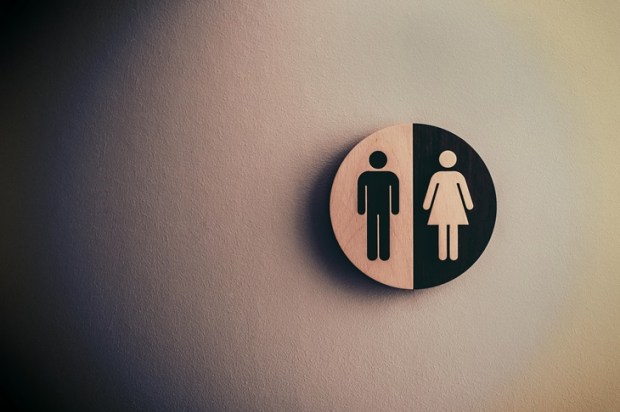The proposed ‘digital services tax’) floated by Communications Minister Paul Fletcher will harm Australian social media and search engine users as well as subscribers to content services like Netflix. Although the ACCC recently came out against considering the idea until greater consensus can be built amongst different national governments at the OECD level, we should still be wary about the threats that such a proposal could pose.
Unelected bureaucrats should have no say over how we run our country. The regressive and ill-advised DST is a proposal pushed under claims about fairness and a ‘level playing field’ for local enterprise. But it is nothing more than a revenue-raising exercise that will ultimately punish the punter on the street and small businesses instead of big digital companies who can more easily bear it or who will simply pass on the cost to their customers.
While the notion of protecting powerful Australian media companies from competition by taxing innovative foreign service providers like Netflix is downright unfair to Australian audiences and will do nothing to encourage local companies to produce better content, taxing services like digital advertising will similarly only hurt those Australians who rely on these services and not the companies who provide them.
By contrast to the rhetoric about a ‘level playing field’, the ACCC proposes handing out more funds to the SBS and ABC for the sake of ‘fairness’ – conferring an unfair advantage over private companies who don’t benefit from handouts and have to actually compete to make content that people want to see in order to gain sponsorship revenue or subscription fees.
Politicians proposing DSTs rely on the flawed reasoning that users create value, meaning that governments are justified in taxing the revenues that these companies earn from their residents. However, it is primarily companies and not users who create the value of the product; services such as targeted advertising and search features as well as content such as films.
Taxing tech companies like Netflix further with a DST would mean that the government is picking winners. Taxing digital services like advertising would result in price hikes that are passed on to the small Australian businesses that rely on these services to reach their customers around the world and will make it harder for them to compete against businesses in countries that don’t impose such taxes.
What would a DST look like in practice? The UK Treasury considered this question and noted:
The DST is focused on those business models for which the participation of a user base can reasonably be considered a central value driver, critical to the success or failure of the business.
Most proposals would only cover profits from three business models: (1) placing ads targeting users of a digital interface based on their data profiles; (2) providing a multi-sided digital platform that allows users on one side of a transaction to interact with users on other sides, including the purchase of goods and services; and (3) selling users’ data.
The United Kingdom’s proposed DST targets the following three business models: search engines, social media platforms, and online marketplaces. But there’s no reason why it could not or would not be extended over time to others such as subscription music services or Internet sites that only sell products from one manufacturer.
This explicitly violates OECD’s cautionary guideline against trying to ring-fence the digital economy with special rules. The guideline is based on the understanding that in a world where industries and economies are increasingly digitised through rapid technological advancements that are often hard to predict and plan for, it is undesirable to develop rules that are likely to go out-of-date and become counter-productive or non-conducive to innovation very quickly.
Moreover, the French have embarked on a similar trail of targeting consumers with an unfair digital services tax. Their tax levies three per cent of profits from companies with annual turnovers over 25 million euros ($A40.9 million). This is on top of the other taxes and regulations that the French slash from companies’ profit margins. KPMG observed:
French tax professionals have expressed concerns about the digital services tax in respect of its conformity to the French constitution, to EU law, and with regard to provisions under applicable income tax treaties, as noted through it being against the ‘ring-fencing’ which OECD guidelines advise against. It is likely that the tax will be challenged by disgruntled taxpayers once its effects come to bear.
The growth in users that have made some platforms dominant is a consequence of the value created by companies, not a cause of it. Granted, data about users, such as their location, can help tailor users’ search results. But in such cases, providing information primarily benefits the users by making their search results more valuable. It also means that users – individuals and businesses, can enjoy services like search engines and social media platforms without paying a thing by simply consenting to the use of their data.
The government should focus on providing the best business environment for tech companies to prosper instead of rewriting the rules to help the ‘chosen few’ local companies who don’t like competition or wealthy multinationals who are more easily able to reduce their tax liabilities or whether the effects of increased costs than their competitors.
Tech companies already pay the company tax on their profits and levy the GST from local consumers when a content subscription is purchased. Ultimately, it isn’t even them who will foot the tax bill – Australian families who pay more for their Netflix subscriptions, Spotify and the like once the cost is passed on.
It may seem surprising and counter-intuitive that Tim Cook, the CEO of Apple, encourages a DST and claims tech companies shouldn’t ‘dodge responsibility.’ Yet Apple stands to benefit if competition is prevented from sprouting from the soil of a productive economy since, as a large multinational conglomerate with a strong, entrenched market share in the digital economy will be better positioned to bear or minimise more burdensome tax than smaller, innovative players. By hurting these small companies, it would also make it easier for larger ones to buy them out and further reduce competition.
Tech companies have invested billions of dollars and created hundreds of thousands of jobs. The technology they have developed has enabled information, education and entertainment to be distributed around the world with unparalleled efficiency and penetration.
Technology has been the greatest tool of empowerment this century. A digital services tax will only ensure that multinationals keep and extend their market share while hurting small companies and ordinary Australians with price hikes or inferior services.
Jacob Watts is a Research Associate with the Australian Taxpayers’ Alliance.
Got something to add? Join the discussion and comment below.
Got something to add? Join the discussion and comment below.
Get 10 issues for just $10
Subscribe to The Spectator Australia today for the next 10 magazine issues, plus full online access, for just $10.


























Comments
Don't miss out
Join the conversation with other Spectator Australia readers. Subscribe to leave a comment.
SUBSCRIBEAlready a subscriber? Log in